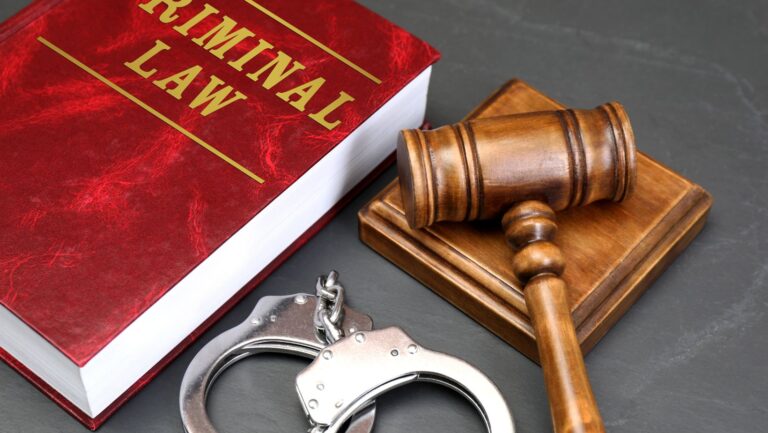Every time someone gets behind the wheel after drinking or using drugs, they risk more than just a ticket — they risk lives. Driving under the influence (DUI) remains one of the most preventable yet devastating causes of accidents in California. One reckless decision can change countless lives in an instant, leading to not only criminal charges but also long and costly civil claims. The legal aftermath of a DUI doesn’t end when the flashing lights fade — it lingers through courtrooms, medical bills, and emotional scars that can last a lifetime.
For those who suffer because of an impaired driver’s choices, justice is about more than punishment. It’s about restoring balance, seeking accountability, and finding a path forward. Working with a reputable Folsom accident lawyer helps victims understand how both criminal and civil systems intertwine — and how each can play a vital role in achieving justice and recovery.
Understanding the Criminal Side of a DUI
When a driver is arrested for DUI, the criminal process begins almost immediately. The state prosecutes these cases to protect the public and discourage future offenses. Depending on the circumstances, penalties can range from fines and mandatory education programs to years of imprisonment. A higher blood alcohol concentration (BAC), repeat offenses, or accidents involving injury or death can quickly escalate the case from a misdemeanor to a felony.
Yet the criminal justice system isn’t designed to make victims whole. It focuses on punishment — not compensation. While offenders may pay fines or serve time, victims often receive little relief from the criminal outcome. That’s where the civil system steps in, providing a separate avenue for victims to pursue compensation for the damage inflicted on their lives.
How Civil Claims Bring a Different Kind of Justice
A civil claim is about accountability on a personal level. Unlike a criminal case, where the state prosecutes the offender, a civil case allows victims to take action directly. The goal is not to imprison the drunk driver but to secure financial compensation for the harm caused — medical expenses, property damage, emotional trauma, and long-term care.
In civil court, the burden of proof is lower than in criminal proceedings. Victims only need to show that the driver’s impairment more likely than not caused the crash. This distinction means a civil claim can succeed even if the driver avoids a criminal conviction, ensuring that victims still have a path to justice.
How Criminal Convictions Strengthen Civil Cases
When a driver is convicted of DUI in criminal court, that conviction becomes powerful evidence in any subsequent civil case. It establishes a legal foundation that supports the victim’s claim of negligence. Judges and juries are far more likely to side with victims when it’s clear the driver already admitted guilt or was found guilty of a DUI offense.
Even so, a lack of criminal conviction doesn’t mean a civil case is hopeless. Skilled attorneys can use police reports, toxicology results, and witness testimony to prove impairment. Civil law offers victims another chance at justice — one that focuses not on punishment, but on healing and restitution.
The Human Cost Behind the Legal Process
While courtrooms and paperwork define the legal side of a DUI, the human side tells a far more painful story. Victims often endure shattered bones, traumatic brain injuries, and emotional scars that don’t fade. Families lose loved ones in moments that could have been easily avoided. The pain doesn’t stop at physical wounds — it extends into sleepless nights, financial hardship, and a sense of loss that money can never truly replace.
For offenders, remorse can be equally haunting. Knowing that one’s actions caused irreparable harm weighs heavily, serving as a lifelong reminder of a choice that can’t be undone. The legal system may deliver verdicts, but it’s the emotional aftermath that defines the true cost of a DUI.
The Overlap of Responsibility and Compensation
A unique aspect of DUI cases is that they blur the line between criminal wrongdoing and civil negligence. The same behavior — impaired driving — is punished in two separate ways. The criminal court enforces laws and deterrence, while the civil court enforces accountability and recovery. In many cases, victims’ civil claims depend on the same evidence used in the criminal case, such as police reports, blood alcohol test results, or surveillance footage.
This overlap can work in a victim’s favor. A guilty plea or conviction often simplifies the civil process, allowing lawyers to focus on proving the extent of damages rather than the cause of the accident.
It’s a powerful reminder that the law’s reach extends far beyond the initial arrest.
The Long-Term Financial and Emotional Fallout
The effects of a DUI accident go beyond just the crash. Both the victims and the offenders deal with long-lasting issues that can change many parts of their lives, including their finances and emotional health.
- Financial burdens for victims: Many endure extensive medical treatments, physical therapy, and months or even years of lost wages.
- Strain on families: Loved ones often absorb the cost of recovery, especially when insurance companies minimize or delay compensation.
- Economic devastation for offenders: Those responsible face fines, legal expenses, restitution, and soaring insurance rates that can persist for decades.
- Emotional trauma for survivors: Anxiety, post-traumatic stress, and lingering grief are common among those who live through DUI-related crashes.
- Lingering fear and avoidance: Some victims struggle to drive again, haunted by memories of the accident.
- Path to recovery: Healing is a gradual process that relies heavily on accountability, support, and a sense of justice to help victims regain stability and peace.
The Importance of Strong Legal Representation
DUI cases can be complicated because they have both criminal and civil parts. Each part follows different rules, timelines, and standards of proof. A skilled attorney knows how to connect these parts, using evidence from one side to support the other. This connection can make a big difference in whether victims get partial compensation or full justice.
A knowledgeable legal team can help victims at every step. They work with prosecutors and insurance companies and build a strong case for damages. More importantly, they provide support and clarity during a tough time in a victim’s life. While no verdict can change what happened, strong advocacy holds reckless drivers accountable and helps victims get back on their feet.





